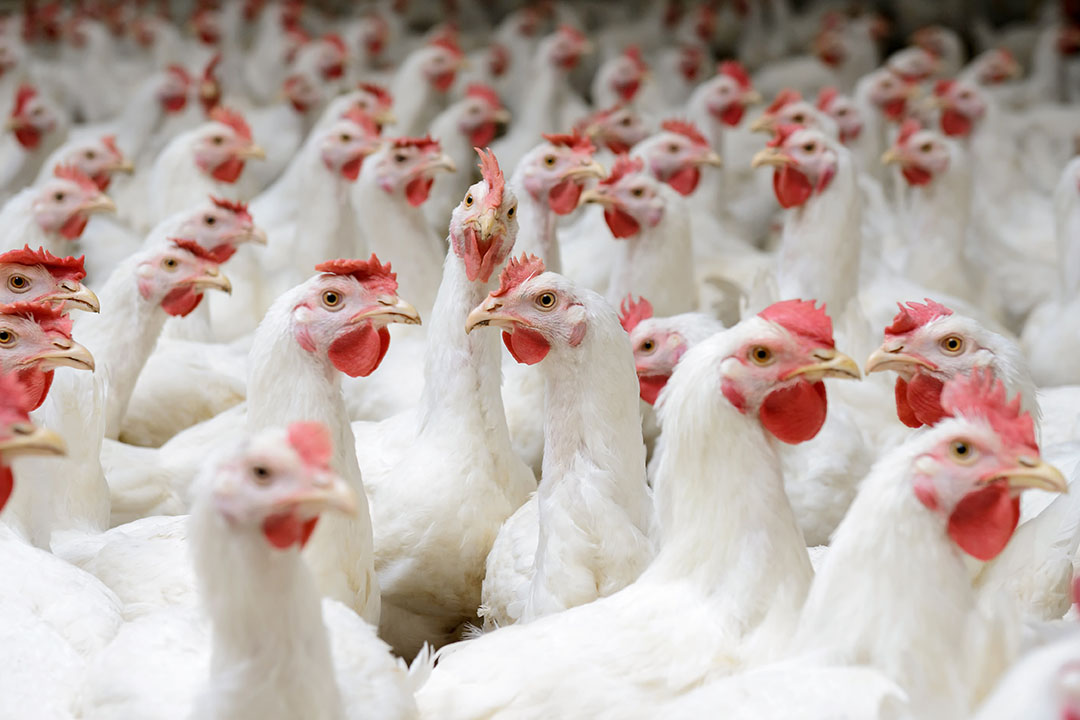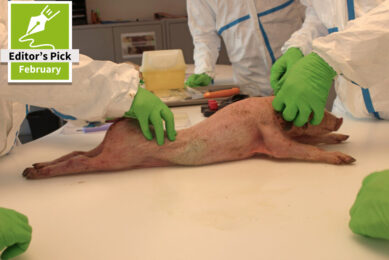Improving gut wall integrity by zinc nutrition

The maintenance of a healthy gut and specifically the integrity of the gut wall is vital for efficient and cost-effective production. Ensuring adequate zinc in optimum form can have a big impact on maintaining gut integrity and minimising the impact of challenges.
The efficiency of the gut wall can be compromised by a number of challenges affecting performance, but the impact of these challenges can be reduced by dietary supplementation with zinc in the most appropriate form. The gut is much more than a tube that absorbs nutrients from the diet. It plays a number of other significant roles contributing to overall health and performance of the animal.
These include immunity, with 70% of the total immune system residing in the gut wall. In addition, the gut signals the pancreas to initiate insulin production and plays a role in the pathways that signal satiety and drive appetite. Furthermore, it is involved in the production of mucus and antimicrobial peptides.
The gut wall also contains neuroendocrine cells that release intestinal hormones and peptides into the bloodstream and regulates a wide range of metabolic functions. So, maintaining gut health is of high importance.
Anything that compromises the gut wall activates the immune system, and in doing so diverts glucose away from production, leading to reduced productivity. Activation of the immune system and inflammation has been shown to decrease weight gain by up to 25% in weaned pigs and 27% in broilers. In dairy cows, milk production was reduced by 42% in mid-lactation cows with experimentally-induced gut wall challenges.
What is a healthy gut wall?
A healthy gut wall is characterised by a number of factors at the histological level. These include tight junctions which bind neighbouring cells together to form an impermeable barrier, rather like a zip. A healthy gut wall will have a higher villi length to crypt depth ratio which means cell turnover is reduced.
When the gut wall is compromised the junctions between cells begin to open, resulting in so-called ‘leaky gut’ which has significant consequences to the animal. The first is that nutrients leak back out of the blood into the gut, reducing the total absorption capacity by the gut and decreasing nutrient availability for production. In addition, water passes into the gut which is a major cause of scouring and dehydration. Toxins can also pass through into the bloodstream and stimulate an immune response, diverting energy from production.
There are several common causes of reduced gut integrity across all species:
- Feed deprivation and reduced feed intake. Reduced intake of key nutrients results in fewer protective bacteria on epithelial cells which makes it easier for pathogens to cross the gut wall. Additionally, reduced feed intake leads to lower blood supply to the intestines which can increase epithelial cell turnover.
- Ruminal and hind gut acidosis. Acidic conditions lead to death of excessive numbers of gram-negative bacteria and concomitant release of lipopolysaccharide (LPS). An acidic environment in the gut increases the translocation of LPS through the mucosa.
- Mycotoxins. These damage the intestinal mucosa and change the composition of the mucus making it more prone to damage.
- Pathogenic bacteria. These also damage the gut mucosa, leading to leaky gut, and decrease the ability to absorb nutrients.
- Heat stress. Changes to the thermoregulatory mechanism of the body shift blood from the intestines to facilitate heat dissipation leading to hypoxic conditions in the intestine, which result in epithelial damage and an inflammatory response.
How does zinc help?
Zinc plays a key role in the immune system as well as being important for cell renewal, so ensuring sufficient zinc can help reduce the impact of disruption of the gut wall, while shortages can exacerbate problems.
Dietary supplementation is crucial as the mobilisation of zinc from body stores is slow and only about 10% can be quickly mobilised meaning this can not be relied on to overcome deficiencies. It is also important to remember that anything that reduces feed intake will reduce zinc intake.
The form of zinc supplement is also crucial as not all sources are as effective. Zinpro Performance Minerals are unique and use amino acid transporters for absorption which makes them the most metabolically available source.
In addition, performance minerals are water soluble, are stable at the low pH found in the stomach, are not affected by dietary antagonists, and are absorbed more efficiently by the animal. The unique way these minerals are absorbed, combined with the fact they are not degraded in the stomach in the way that inorganic minerals and other organic chelated minerals are, means an optimal supply to the animal can be ensured.
Furthermore, they are also metabolised differently with less being excreted in the urine which indicates that more of the mineral is available to the animal for longer.
Evidence that zinc source is key
The effect of feeding zinc in a performance mineral form is backed by extensive trial data across all species. Studies in steers showed that feeding Availa-Zn increases the villi height:crypt depth ratio in animals challenged by heat stress (Figure 1). Availa-Zn has also been shown to decrease intestinal inflammation (Figure 2), reduce T-cell abundance and to increase villi length in broilers subjected to nutritional stress, while tight junctions were maintained in heat stressed birds, reducing the occurrence of ‘leaky gut’.
Figure 2 – Immuno-histological staining for CD3+ positive cells at 10 days of age showing reduced intestinal inflammation in birds fed Availa-Zn.

Pigs challenged with pathogenic bacteria (Lawsonia intracellularis) and fed Availa-Zn were more robust and recovered quicker from pathogen challenges. Availa-Zn strengthened the intestinal barrier leading to less gut damage (Figure 3) and accelerated the formation of antibodies to pathogenic bacteria.
Minimising the impact of challenges
Maintaining gut wall integrity is fundamental for cost-effective production across species. Ensuring adequate zinc in optimum form can have a big impact on maintaining integrity and minimising the impact of challenges.
Authors:
Dr Christof Rapp, Dr Cibele Torres and Dr Huw McConochie, Technical Services, Zinpro Corporation







